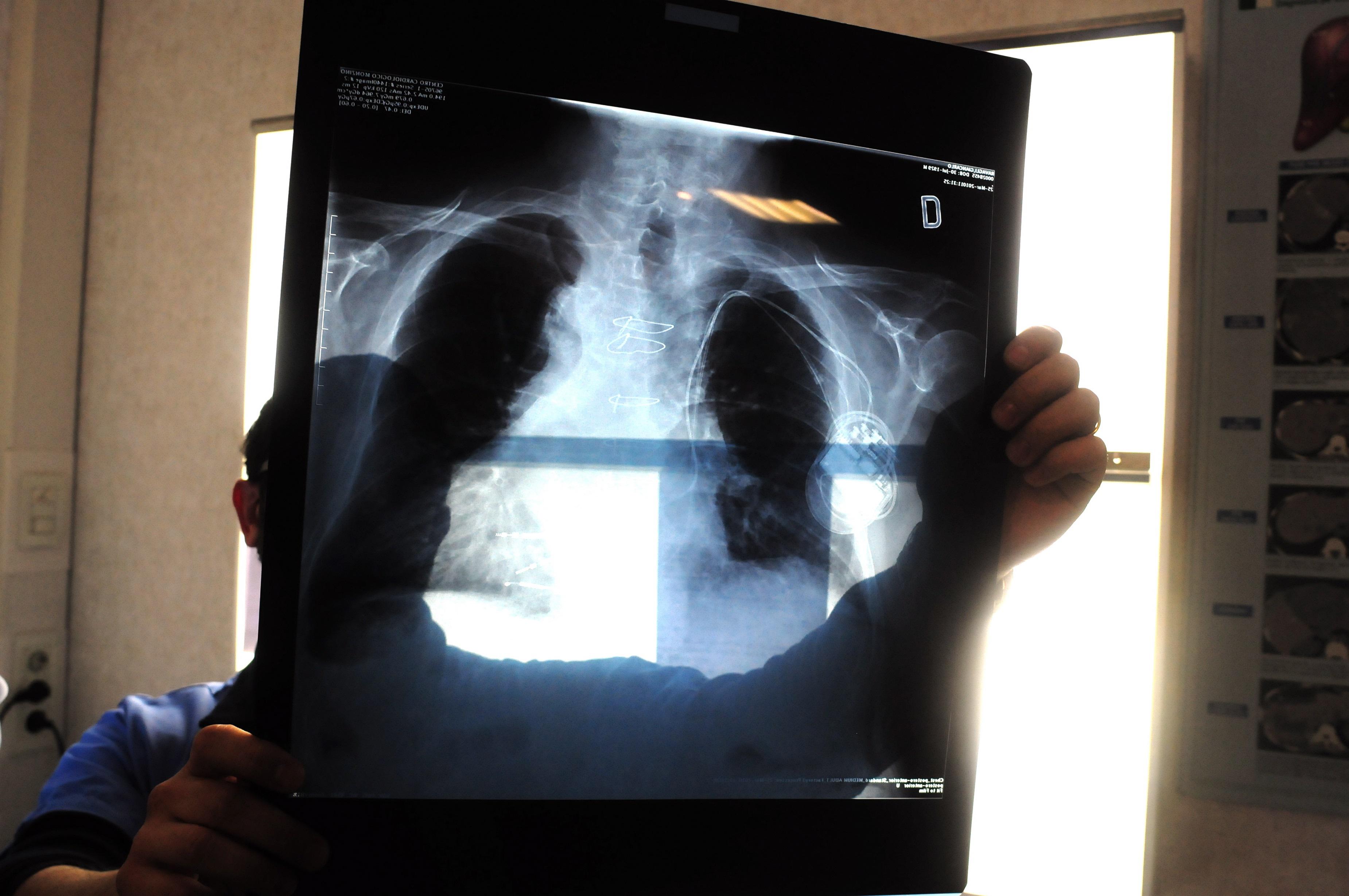According to the Greens, the inequality of the labor market could be resolved by means that the trade union movement opposes in order to protect its own dominance. He proposes abandoning general increases in growth centers and moving in the direction of basic income.
Finns the standard of living is historically very high and we should have little cause for concern. The veteran politician of the Greens Osmo Soininvaaran however, according to us, our lives are too bad for our opportunities.
“There are hundreds of thousands of unemployed in Finland, and at the same time hundreds of thousands are suffering from work-related stress and are making themselves fit for work with psychiatric drugs,” says Soininvaara, who left Parliament six years ago. He is still sitting in the Helsinki City Council.
Among other things, Soininvaara is looking for solutions to the inequality in the labor market, which was published in the autumn Social policy in the 2020s in his book. It was nominated as a non-fiction Finlandia candidate this week.
“My professor of statistics once said that slow trends are the most dangerous because they have time to adjust. The increase in inequality in the labor market is a trend that would require a completely different policy. Now we are trying to fine-tune the old machine, but a complete change will never be made. ”
Right green According to the well-known Soininvaara, one of the culprits in the problems is the trade union movement. It seeks to raise minimum wages by pushing for minimum wage increases in collective agreements and equal increases for all.
According to Soininvaara, a large number of low-educated Finns have been “priced out of the labor market”. Employers do not always want to pay the slightest wage specified in the collective agreement for their work input.
Sometimes, on the other hand, the unemployed may find that a small wage does little more than social security. At the same time, there is a shortage of labor in the restaurant and catering sector, for example.
“I find it very disgusting to have a society where some people are bought off the shelf and offered bread and circus fun. Although statistically, economic inequality has not increased, incompetence has increased. Money is coming, but you are on the sidelines. ”
Soininvaara emphasizes that there is no way to increase inequality or reduce the livelihoods of low-income workers. Instead, he says he believes workers will win if wages start to be set more market-like.
“
“Incompetence has increased.”
Labor shortage Soininvaara would be solved by giving up some of the general increases for everyone. In his model, the general increases would in future only apply to the collective wages in the collective agreements, ie the lowest wages. Today, the general increase is also granted to employees whose salary is higher than the table salary.
In large cities like Helsinki, a large proportion of employees now earn more than the table salary.
Soininvaara’s proposal would therefore mean that the effect of the wage increases agreed by the labor market organizations in the growth centers would practically disappear. Any salary increases would be agreed at the workplace.
“In that case, restaurants or care employers suffering from labor shortages would dare to acquire labor by raising wages. They would know that, if necessary, they would also be able to reduce their wages proportionately in the future without having to pay general increases. The change would probably increase wages more than they would reduce them, ”Soininvaara believes.
Such price volatility, he said, affects many other things but not labor. In the construction industry, for example, when wood is depleted, its price rises.
“If an entrepreneur had to pay a higher price permanently, he would not necessarily buy the timber but not build it.”
For trade unions and national collective agreements would continue to play a major role in the proposal. They would still define many working conditions and minimum spreads, which have a big impact outside the big cities.
According to Soininvaara, sector-specific minimum wages should not be abandoned, so that, for example, the only factory in a small locality cannot tread wages in any way.
However, efforts should not be made to increase the lowest wages for him, as is currently the case in areas where unemployment prevails.
“The entire political left should change its strategy so as not to seek to raise minimum wages. This is pushing people out of the labor market. Instead, efforts should be made to even out income inequalities by increasing income transfers. In other words, it would be acceptable for others to be paid a little less, and then supported by, for example, a negative income tax or employment income support. ”
Government is currently investigating income support, where very low – paid workers, pensioners and entrepreneurs would automatically receive public funding on top of their income. According to Soininvaara, the maximum amount of monthly support could, at least initially, be around 200-300 euros. In this way, even low-paid work would become more profitable.
Osmo Soininvaara had a long career as a Member of Parliament. In the picture he is sitting with the left alliance Esko Seppänen in Smolna in 1995.
“
“The trade union movement thinks of its own power.”
The reform would be a small step towards a basic income. Soininvaara has supported basic income for decades. The basic income would be paid to everyone, but it would be taxed off as income rises. For example, the unemployed would be deprived of obligations and caveats in their job search. In Soininvaara’s opinion, this would make the labor market fairer than at present: if the unemployed were not pressured into accepting any unpleasant work, this would be in a more equitable negotiating position with the employer.
“I’m still in favor of a basic income, but I know its passage isn’t politically realistic. That is why I very much welcome this clarification of income support. ”
Supporting low-paid workers will naturally increase public spending. According to Soininvaara, “it is not quite cheap, but it is socially necessary”.
Trade union movement opposes many of Soininvaara’s proposals, such as the partial waiver of general increases. What does he think it comes from?
“The trade union movement is likely to oppose the idea because people whose wages are above the table wages would no longer have much interest in joining the trade union movement. The trade union movement does not protect workers here, but itself. It thinks of its own power, ”criticizes Soininvaara.
He adds that much of the trade union movement’s activities are necessary.
In Soininvaara’s opinion, however, it is precisely the opposition to a more market-based determination of wages that increases social inequality. He describes it as a “damn injustice” that wages in the care sector do not rise despite labor shortages. General increases in Finland are typically dimensioned so that public sector employees cannot receive higher wage increases than employees in the export sector.
Excessive Soininvaara would reduce employment by giving all employees a subjective right to part-time work.
“That’s what parents of young children have. It should be possible for others to do the same. But at my own expense. This is, of course, a horror for the Ministry of Finance, because as working hours and wages fall, so does tax revenue. ”
However, when reforming society, one cannot think only of public finances, Soininvaara says. According to him, labor market inequality is a problem that simply needs to be addressed. In his book, he also reviews solutions to the environmental crisis, for example.
Soininvaara picture Social policy in the 2020s -is a collection of themes that have emerged during his career and have been refined further. He says he has been preparing the book for more than a decade and has put a lot of work into it. Is there still enough writing excitement for years to come?
“This process pulled me right into the barrel. But at least the rest of the book will definitely be published in some form. For example, I could make them a series of columns. At least they pay better than writing a book, ”Soininvaara says and laughs.
Osmo Soininvaara
-
Born in 1951 in Helsinki.
-
Member of the Greens in 1987-91, 1995-2007 and 2011-2015.
-
Minister of Basic Services 2000-2002.
-
Licentiate of Political Science.
-
The most recent book, Social Policy in the 2020s, was named the Finlandia candidate for non-fiction.
.
#Saturday #guests #lives #bad #partly #reason #trade #union #movement #Osmo #Soininvaara






